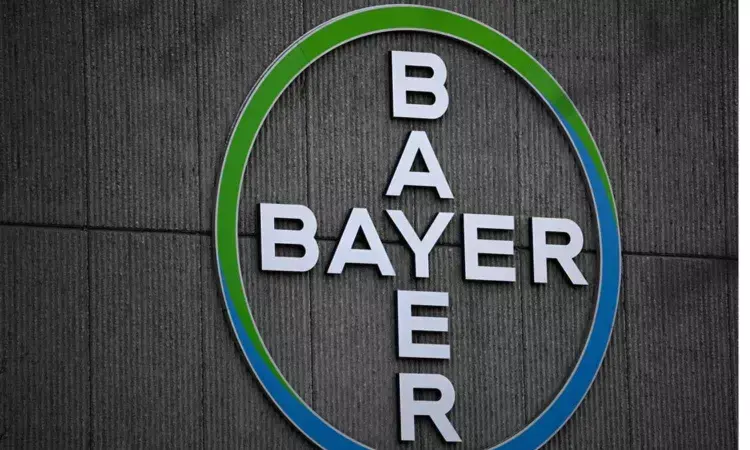- Home
- Medical news & Guidelines
- Anesthesiology
- Cardiology and CTVS
- Critical Care
- Dentistry
- Dermatology
- Diabetes and Endocrinology
- ENT
- Gastroenterology
- Medicine
- Nephrology
- Neurology
- Obstretics-Gynaecology
- Oncology
- Ophthalmology
- Orthopaedics
- Pediatrics-Neonatology
- Psychiatry
- Pulmonology
- Radiology
- Surgery
- Urology
- Laboratory Medicine
- Diet
- Nursing
- Paramedical
- Physiotherapy
- Health news
- Fact Check
- Bone Health Fact Check
- Brain Health Fact Check
- Cancer Related Fact Check
- Child Care Fact Check
- Dental and oral health fact check
- Diabetes and metabolic health fact check
- Diet and Nutrition Fact Check
- Eye and ENT Care Fact Check
- Fitness fact check
- Gut health fact check
- Heart health fact check
- Kidney health fact check
- Medical education fact check
- Men's health fact check
- Respiratory fact check
- Skin and hair care fact check
- Vaccine and Immunization fact check
- Women's health fact check
- AYUSH
- State News
- Andaman and Nicobar Islands
- Andhra Pradesh
- Arunachal Pradesh
- Assam
- Bihar
- Chandigarh
- Chattisgarh
- Dadra and Nagar Haveli
- Daman and Diu
- Delhi
- Goa
- Gujarat
- Haryana
- Himachal Pradesh
- Jammu & Kashmir
- Jharkhand
- Karnataka
- Kerala
- Ladakh
- Lakshadweep
- Madhya Pradesh
- Maharashtra
- Manipur
- Meghalaya
- Mizoram
- Nagaland
- Odisha
- Puducherry
- Punjab
- Rajasthan
- Sikkim
- Tamil Nadu
- Telangana
- Tripura
- Uttar Pradesh
- Uttrakhand
- West Bengal
- Medical Education
- Industry
Bayer Lynkuet approved in EU for hot flashes

Berlin: Bayer has announced that the European Commission has granted marketing authorization in the European Union (EU) for elinzanetant, under the brand name Lynkuet.
The compound is approved for the treatment of moderate to severe vasomotor symptoms (VMS; also known as hot flashes) associated with menopause or caused by adjuvant endocrine therapy (AET) related to breast cancer.
“The European approval of Lynkuet brings a new option to women whose daily lives are disrupted by vasomotor symptoms,” said Christine Roth, Executive Vice President, Global Product Strategy and Commercialization, and Member of the Pharmaceutical Leadership Team at Bayer. “We understand how challenging and isolating these symptoms can be, often interfering with daily rhythm, personal productivity, and overall quality of life. Our commitment is to support women with solutions that truly address their needs, helping them feel like them themselves again by supporting health and wellbeing at every stage.”
By 2030, it is estimated that 1.2 billion women globally will be experiencing menopause. VMS affect up to 80% of women during the menopausal transition. In Europe, approximately 40% of women report moderate to severe VMS, highlighting the substantial burden of these symptoms on daily life and overall well-being.
“Menopause symptoms, including hot flashes, can greatly affect women's quality of life,” said Nick Panay, Principal Investigator for OASIS-3, Consultant Gynecologist, Imperial College Healthcare NHS Trust, Professor of Practice, Imperial College London and Immediate Past President of the International Menopause Society. “This approval is an important milestone in the area of menopause care as it expands therapeutic options for women experiencing distressing menopause symptoms with a novel targeted hormone-free treatment and facilitates healthcare professionals to achieve more personalized treatment.”
VMS may also be caused by endocrine therapy, for the treatment or prevention of breast cancer. Breast cancer remains the most common cancer diagnosed in women worldwide, with approximately 70% of cases categorized as hormone-receptor positive (HR+). Endocrine therapy, an established treatment for women with HR+ breast cancer, can often result in VMS impacting quality of life and treatment adherence.
“Menopausal symptoms are common side effects of endocrine therapy for breast cancer, frequently leading to treatment discontinuation, which highlights the importance of managing these symptoms in breast cancer care,” said Dr. Fatima Cardoso, Principal Investigator of OASIS-4, from Lisbon, Portugal. “With the approval of this hormone-free therapy, we now have the first approved treatment option for this indication that will help in addressing an important unmet medical need of women and improve their quality of life during this challenging time.”
The approval of elinzanetant in the EU is based on the positive results from the OASIS Phase III clinical development program, comprising OASIS-1, -2, -3 and -4, which met all primary endpoints and key secondary endpoints in all four studies and demonstrated a favorable safety profile. Data have been published in diverse medical journals: OASIS-1 and –2 in August 2024 in The Journal of the American Medical Association (JAMA), OASIS-3 in The Journal of the American Medical Association (JAMA) Internal Medicine in September 2025 and OASIS-4 in the New England Journal of Medicine (NEJM) in June 2025.
Read also: Bayer Lynkuet gets USFDA nod for treatment of moderate to severe vasomotor symptoms due to menopause
Ruchika Sharma joined Medical Dialogue as an Correspondent for the Business Section in 2019. She covers all the updates in the Pharmaceutical field, Policy, Insurance, Business Healthcare, Medical News, Health News, Pharma News, Healthcare and Investment. She has completed her B.Com from Delhi University and then pursued postgraduation in M.Com. She can be contacted at editorial@medicaldialogues.in Contact no. 011-43720751
Dr Kamal Kant Kohli-MBBS, DTCD- a chest specialist with more than 30 years of practice and a flair for writing clinical articles, Dr Kamal Kant Kohli joined Medical Dialogues as a Chief Editor of Medical News. Besides writing articles, as an editor, he proofreads and verifies all the medical content published on Medical Dialogues including those coming from journals, studies,medical conferences,guidelines etc. Email: drkohli@medicaldialogues.in. Contact no. 011-43720751


